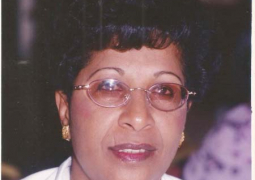It is with great joy that we hear news from the White House of US President, Barack Obama's week-long foreign tour in July that will include an African country, Ghana. Considered as the most powerful man in the world, President Obama, by his visit to the continent, is expected not only to strengthen the already good ties between his country and the African Continent but will also serve as a moral booster and an assurance that the Afro-American president holds in high regard the continent of his African ancestors. Mr Obama will travel to the Ghanaian capital, Accra, on his first trip as president to sub-Saharan Africa. There had been speculation that Mr Obama's first presidential trip to the continent might be to Kenya, home of the president's late father, but such speculations have been eliminated by his announced travel schedule.
According to the White House President Obama and Wife, while in Ghana, will be looking forward to "strengthening the US relationship with one of our most trusted partners in sub-Saharan Africa".
Why Ghana is declared one of the most trusted partners in Sub-Saharan Africa is not expressly stated by the American president, but it should be clear to all that to be a trusted partner or friend to the U.S., one has to be a genuine bastion of democracy, human rights, the rule of law, liberty of the individual, and good governance. It must be also that the recent free and fair elections in Ghana and the peaceful and truly democratic environment in which they were conducted, must have hit a strong chord on the American presidency as it did on all peace-loving and democratic countries around the world.
The White House also states that President Obama hopes also to highlight during his tour "the critical role that sound governance and civil society play in promoting lasting development". In our view this approach is not inconsistent with the basis for declaring a good partnership with Ghana. It is only logical in the political context of the tour.
Meanwhile Correspondents say that Mr Obama, preoccupied with foreign policy challenges elsewhere in the world, has however not yet articulated a detailed policy for Africa. It is hoped however that the visit to Ghana will begin to make those policies clear.


